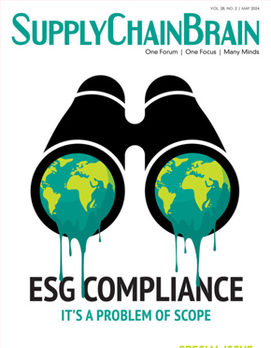
The consumer-goods sector is growing more complex and harder to predict than ever before. Challenges include the need to enable “mass customization” of product, geared toward fickle and demanding customer tastes; do a better job of synching supply with demand, to avoid the twin evils of stockouts and overstocks; balance inventories in a manner that meets the needs of both traditional retailing and online sales; and fulfill orders at lightning speed.
Some of those requirements seem especially well-suited to automation. Robots can make products in the factory, and fill orders in the warehouse, faster than the most efficient human worker. But can A.I. divine the subtleties — some might say irrationalities — of today’s omnichannel shopper? For automated systems that can command huge resources, time and money to implement, is there really a big payoff at the end of the line?
A new study by The Consumer Goods Forum and PA Consulting thinks so. Its attitude toward A.I. and robotics automation can be summed up in two words: “inevitable evolution.”
The report goes on to say that the management of this increasing complexity “is beyond the current abilities of workforce and infrastructure.”
Any deep dive into the future of A.I. has to start with a definition of the term. These days, it can be notoriously fuzzy. What used to be a label for efforts to create machines that model the functioning of the human brain is now evoked to describe any analytical tool that relies on computing power.
Ruan Jones, manufacturing automation specialist with PA Consulting, defines A.I. as the use of digital data “in an analytical way,” to identify a range of relationships that can support manual intervention or enable automated responses through feeding that data back into the system.
The term “robotics automation” is easier to nail down. It involves “the automated handling of materials and parts through manipulation,” says Jones. A.I. might support some robotics systems, but it isn’t required for operations involving repetitive motions and fixed learning sequences.
We’re far from the point where A.I. can completely replace human decision-making. The technology is most effective today, Jones says, when it’s applied to a clearly defined problem. In the medical world, for example, it has proved to be effective in making patient diagnoses. (Although IBM’s Watson has fallen short of its goal to improve cancer treatment.) A.I. systems have agreed with surgeons 95 percent of the time. As they gain experience, they should become even more accurate.
A.I. is less well suited in situations where causes and appropriate responses aren’t easily understood. In such cases, Jones says, “the ability to create an A.I. system that delivers good output is very complex and difficult.”
Given the wide range of A.I. technologies in play today, it can be difficult to generalize about their overall impact on industry. The term ranges from “narrow” or “weak” A.I. — an “intelligent” program that mimics human cognitive functions — to deep learning, natural language processing, motion robotics and computer vision.
Taken as a whole, the new study claims, A.I. and robotics automation “could become the autopilot behind a supply chain, which handles planning and fulfillment, designs products, monitors inventory levels, optimizes sourcing, synchronizes production and maintains machinery.”
That’s a tall order for a technology that has been routinely hyped beyond its actual capabilities. For many years, full-fledged A.I. seemed to be perpetually a decade away from becoming reality. But as scientists walked back some of their boldest claims for the ability to build artificial brains, elements of A.I. began showing up in manufacturing, logistics and other practices related to the supply chain.
In 2016, a study by MHI and Deloitte found 51 percent of supply-chain and logistics professionals declaring that robotics and automation can provide them with a competitive advantage. That was up from 39 percent the year before.
Still, the numbers showed that nearly half of those surveyed remained unconvinced of the advantages of A.I. and automation. Jones ascribes the high number of non-converts to the failure of many early applications of robotics programs. Those initiatives, he adds, tended to be site-specific and did not account for “the total ecosystem that the solution goes into.” What looked good on paper crashed and burned because companies failed to match the capabilities of their operators and maintenance teams to the needs of the new systems.
Such failures are to be expected with the deployment of any new technology, especially one that promises such sweeping applications and impact as A.I. and related automation tools. Around 35 percent of respondents to the MHI/Deloitte study have already adopted robotics in their supply chains. PA Consulting expects that figure to climb to 74 percent by 2025. IDC predicts that global annual investment in robotics will grow from $71bn in 2015 to $135bn in 2019.
For that to happen, A.I. and robotics automation will have to demonstrate a strong return investment. But it’s more than a question of money.
“It’s about quality, consistency and operator safety,” says Jones. “As they start engaging with robotics and A.I., people will start to see other benefits they haven’t envisioned. They’ll start building that into their businesses, so that the cases become more robust.”
Next: The factory of the future.







